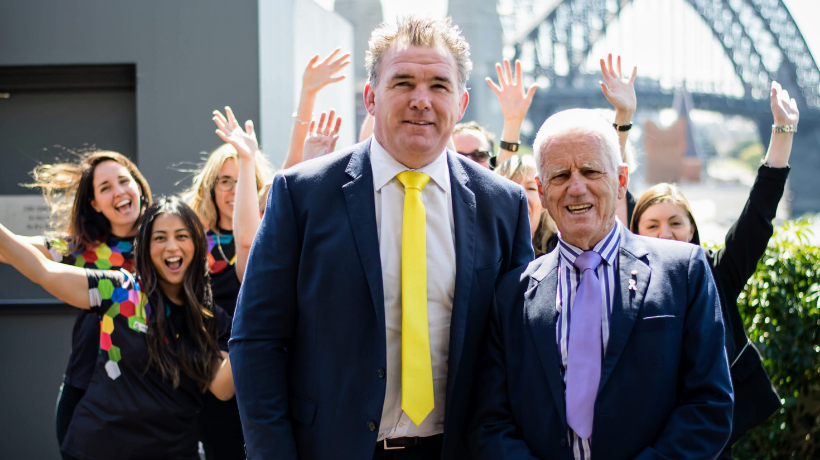
Owen Finegan, CEO of The Kids’ Cancer Project, reveals how his sporting success with the Wallabies rugby team influenced the path he set for the charity
It seems a long way from the middle of the rugby field to the head of the corporate boardroom table, but for Owen, it’s all been part of his journey over the past two decades.
The 49-year-old played with Australia’s national Rugby Union team the Wallabies from 1996 to 2003 and was named 2001’s Player of the Year. Since 2015, he has been CEO of The Kids’ Cancer Project, a charity that has invested more than $50 million into childhood cancer research.
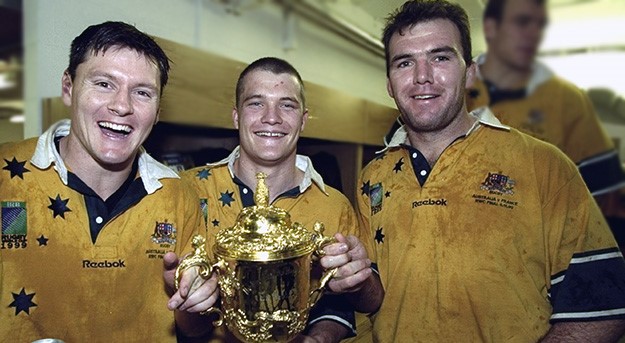
Playing to win
While the realms of professional sport and a charitable organisation seem worlds apart, Owen says the lessons learned about team work to achieve goals on the playing field proved the ideal training for leading the national not-for-profit. Owen explains:
In a team sport, everyone has to be aligned, playing to win and all have the same goals, and you soon realise it’s not that different in a work environment...
In the workplace, it’s a matter of establishing an alignment of what your mission and vision are, your values as an employee, and how you work together to achieve the goals.
Organisational leadership
When he accepted the CEO position, Owen realised a more effective structure was needed for The Kids’ Cancer Project to better achieve its goals. A new organisational leadership architecture was implemented built from two simple, yet powerful ideas: Leadership Thinking and Leadership Actions.
Leadership thinking is about being solution focused by asking three questions:
- "What do we want to achieve and why?"
- "Where are we now?"
- "What next?"
Leadership actions for sustainable success are based on three practical conditions:
- Clarity
- Climate
- Competence
Owen explains:
This is about people understanding and valuing each other’s work...You can sit at a desk and not know what the person four down actually does. Once you understand the value of what each person does, it makes for a far more coherent and successful team.
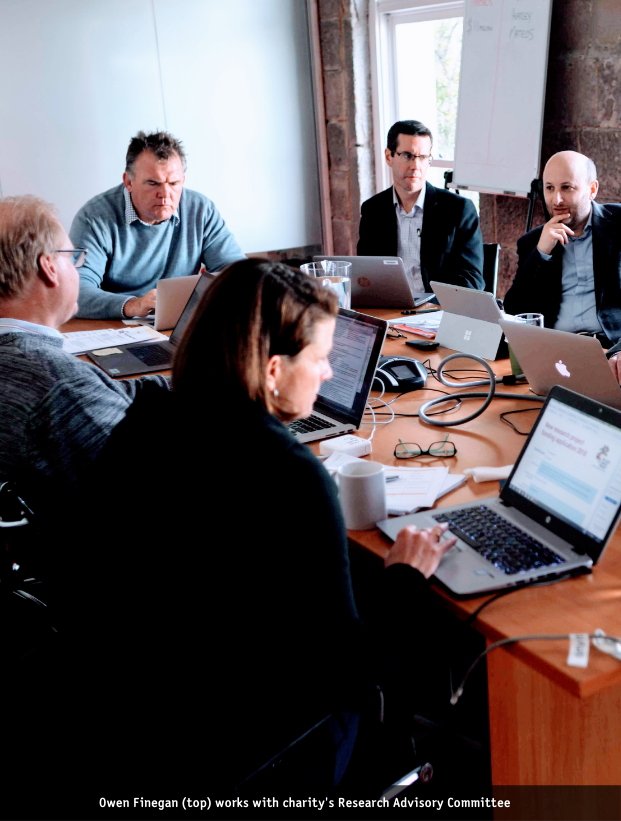
Sustainable business modelling
The Kids’ Cancer Project was started in 1993 by Col Reynolds. When Owen joined as CEO six years ago, the organisation had a model that was highly dependent on a raffle ticket telemarketing fundraising model and was funding 12 medical research projects.
This year, The Kids’ Cancer Project aims to commit almost $4 million through a range of partnerships and fundraising campaigns to fund 35 research projects across 21 research institutions around the country. There is also greater involvement in collaborations with other charities.
It’s knowing we’re doing our very best but it’s a teamwork approach that makes a difference. Yet again, that’s very much like playing rugby.
- Owen Finegan, CEO, The Kids' Cancer Project
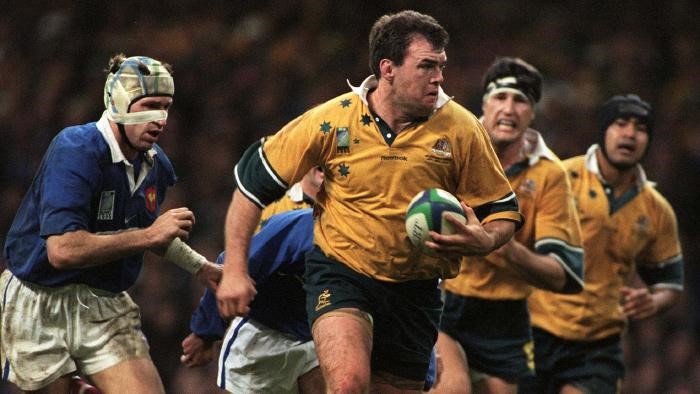
Team player
Rod McQueen, legendary Wallabies coach, worked closely with Owen during his playing years. He says the application of business analogies to coaching the rugby team were lessons that always resonated with Owen. Rod recalls:
When it came to group tasks, by including team members in the decision-making process and giving them ownership, we found it more likely to get a decision that worked...
Owen often played an important part of this culture, and he’s since maintained these same principles throughout his successful business career.
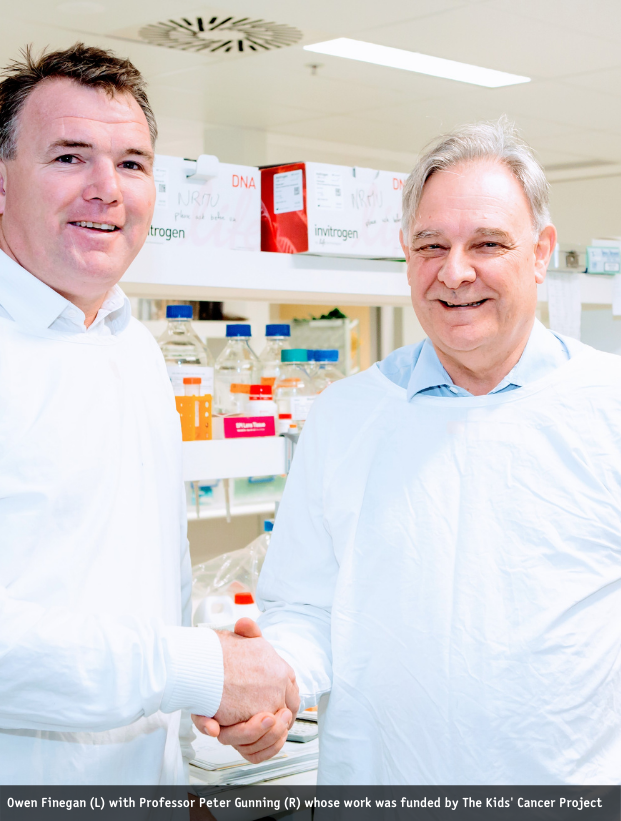
Fundraising imperative
The stats around childhood cancer are shocking; 950 Australian children are diagnosed with the disease every year and three children die every week. It is the country’s leading cause of death in children by disease. Owen explains:
The words ‘cancer’ and ‘children’ should never even be in the same sentence but that’s the dilemma we face every day...
Once I started talking to researchers about the work they were doing, our mission became 100 percent survival of kids with cancer and eradicating the harmful side effects that come with it. We are the only national charity that funds multiple projects in multiple states, which is why our fundraising is so crucial.
The COVID-19 pivot
The charity is wholly independent and doesn’t receive government funding as Owen explains:
We rely on community and corporate fundraising partners for support to make all this happen.
So the COVID-19 pandemic of 2020 saw another shift in The Kids’ Cancer Project model, as many regular fundraising events were forced to go online. What initially seemed disastrous, however, proved a successful move both for the organisation and its most important partners.
We worked harder as we went into the online space and had to be innovative as we adjusted campaigns...It was a tumultuous period, but what was really interesting was people were more generous with gifts and our donations actually went up. Thanks to them, we are now ahead on budget for new projects, and are looking to grow our digital footprint in a really strong way.
It takes a village
As for the rest of 2021 and beyond, Owen says there are important lessons to take from the past year to steer the organisation into the future.
The big thing is about being more effective in our engagement with our donors, sponsors and partners to build stronger relationships and advocating for funding from the government...
We also want to continue to collaborate with other charities and build those into strong relationships so that we all benefit as a community.
What must remain the key message, Owen stresses, is why working to cure childhood cancer is an essential health issue for all Australians to be aware of.
We are lucky to have advocates across Australia to help build that awareness of what these kids are going through and why The Kids’ Cancer Project is so important.
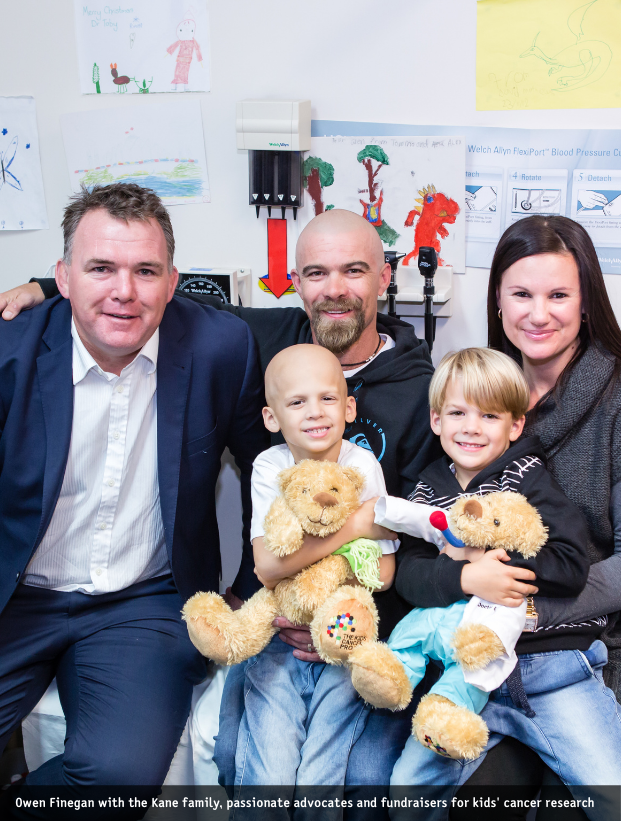
We'll keep growing our commitment to research in ways that will have the greatest impact so it changes lives for the better. It’s being clear on what’s the ultimate goal – that’s the same as rugby!
- Owen Finegan, CEO, The Kids' Cancer Project
